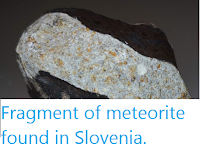Asteroid 2000 BO28 passed by the Earth at a distance of about
10 980 000
km (28.6 times the average distance between the Earth and the Moon, or 7.34% of the distance between the Earth and the Sun), slightly after 3.05 am
GMT on Saturday 21 March 2020. There was no danger of
the asteroid hitting us, though were it to do so it would have
presented a considerable threat. 2000 BO28 has an estimated
equivalent
diameter of 210-650 m (i.e. it is estimated that a spherical object with
the same volume would be 210-650 m in diameter), and an object of this size would be predicted to be capable of passing
through the Earth's
atmosphere relatively intact, impacting the ground directly with an
explosion that would be 20 000-825 000 times as powerful as the
Hiroshima
bomb. Such an impact would result in an impact crater 3-10 km in
diameter
and devastation on a global scale, as well as climatic effects that
would last years or even decades.
2000 BO28 was discovered on 30 January 2000 by the University of Arizona's Kitt Peak-Spacewatch Project at the Steward Observatory in
the Catalina Mountains north of Tucson. The designation 2000 BO28 implies that it was the 686th asteroid (asteroid O28 -
in numbering asteroids the letters A-Y, excluding I, are assigned
numbers from 1 to 24, with a number added to the end each time the
alphabet is ended, so that A = 1, A1 = 25, A2 = 49, etc., which means that O28 = 14 + (24 X 28) = 686) discovered in the seconf half of January 2000
(period 2000 B).
2000 BO28 has a 809 day (2.21 year) orbital period, with an elliptical
orbit tilted at
an angle of 6.34° to the plain of the Solar System which takes in to
0.68 AU from the Sun (68% of the distance at which the Earth orbits the
Sun, and slightly inside the orbit of the planet Venus) and out to 2.72 AU (272% of the distance at which the Earth orbits
the sun and further from the Sun than the planet Mars).
This means that close
encounters between the asteroid and Earth are fairly common, with the
last thought to have happened in July 2011 and the next predicted
in September 2022. It is therefore classed as
an Apollo Group Asteroid (an asteroid that is on average further from the Sun
than the Earth, but which does get closer). As
an asteroid probably larger than 150 m in diameter that occasionally
comes within 0.05 AU of the Earth, 2000 BO28 is also classified
as a Potentially Hazardous Asteroid.
See also...
Follow Sciency Thoughts on Facebook.







